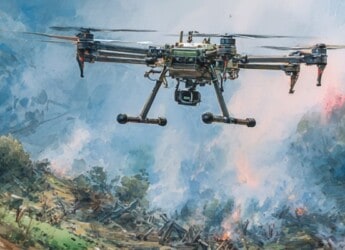Editor’s Note: Autonomous trucking is no longer just a concept—it’s moving toward real-world deployment. Volvo and Waabi’s collaboration marks a shift from pilot programs to commercial driverless operations, beginning in Texas in 2025. This development is shaping the future of freight, but it also introduces challenges that extend beyond logistics.
For eDiscovery and legal professionals, AI-driven transportation presents a new frontier in data governance, liability analysis, and digital forensics. Autonomous trucks generate vast amounts of data, from sensor logs to AI decision-making records, all of which could become critical in regulatory compliance, accident investigations, and litigation. As these vehicles roll out, how companies handle, store, and retrieve this data will be essential to ensuring legal defensibility and operational transparency.
Content Assessment: Autonomous Trucking and eDiscovery: Volvo and Waabi Shape AI Freight’s Future
Information - 93%
Insight - 94%
Relevance - 90%
Objectivity - 90%
Authority - 88%
91%
Excellent
TA short percentage-based assessment of the qualitative benefit expressed as a percentage of positive reception of the recent article from ComplexDiscovery OÜ titled, "Autonomous Trucking and eDiscovery: Volvo and Waabi Shape AI Freight’s Future.
Industry News – Artificial Intelligence Beat
Autonomous Trucking and eDiscovery: Volvo and Waabi Shape AI Freight’s Future
ComplexDiscovery Staff
The future of autonomous freight transport is advancing rapidly, and Volvo Autonomous Solutions and Waabi are strengthening their collaboration to bring AI-driven trucking to North American highways. Their latest initiative integrates Waabi’s virtual driver technology into Volvo’s autonomous trucking platform, setting the stage for large-scale deployment. With plans to launch commercial driverless operations in Texas in 2025, this partnership builds on two years of collaboration and continued investment in AI-driven safety and efficiency.
At the heart of this development is the Volvo VNL Autonomous, a truck built on Volvo’s autonomous technology platform, designed to accommodate diverse operational needs across Volvo Group’s truck brands. The vehicle will be manufactured at Volvo’s New River Valley assembly plant in Virginia, aligning cutting-edge AI innovation with Volvo’s established production expertise. The Waabi Driver, an advanced AI system integrated into the truck, is built to handle complex road scenarios through a unique approach known as AV2.0. Unlike traditional autonomous vehicle software, this system trains its AI in a neural simulator before real-world deployment, allowing it to refine its decision-making processes within a controlled environment before navigating actual road conditions. According to Waabi’s CEO, Raquel Urtasun, this method ensures a more scalable and efficient automation process by integrating AI at the manufacturing level rather than retrofitting it later.
This initiative is the result of an evolving partnership between Volvo and Waabi, which began when Volvo Group Venture Capital first invested in Waabi in January 2023. That collaboration deepened with Volvo’s participation in Waabi’s $200 million Series B funding round, underscoring the automaker’s commitment to AI-driven freight solutions. The upcoming Texas launch represents a significant milestone, transitioning from testing and pilot programs toward driverless freight operations on public roads. However, this deployment is expected to begin with controlled, phased operations rather than an immediate, large-scale rollout. Broader adoption will depend on regulatory approvals, infrastructure readiness, and continued refinement of self-driving technology.
Regulatory oversight remains a key factor in the success of autonomous trucking. The National Highway Traffic Safety Administration (NHTSA) and the Federal Motor Carrier Safety Administration (FMCSA) establish general safety guidelines, but individual states dictate whether and how autonomous trucks can operate commercially. Texas has positioned itself as a leader in autonomous trucking, permitting driverless commercial vehicles under specific conditions. Industry groups such as the Autonomous Vehicle Safety Consortium (AVSC) are also working to establish best practices for self-driving truck operations, ensuring that safety remains a top priority as AI-powered freight expands.
As self-driving freight technology moves toward commercial deployment, cybersecurity and data governance remain critical concerns. Autonomous trucks rely on a network of sensors, cloud-based analytics, and AI-driven decision-making systems, all of which require robust protections against cyber threats. To address these challenges, industry stakeholders are implementing security measures such as encrypted data transmission, AI model verification, and compliance frameworks aligned with privacy regulations like GDPR and CCPA. While cybersecurity risks exist in all connected vehicle systems, manufacturers, regulators, and fleet operators are actively working to mitigate vulnerabilities.
Beyond security and governance, AI-powered freight offers tangible benefits for logistics and transportation. Self-driving trucks have the potential to enhance road safety by reducing human error, which accounts for a significant portion of highway accidents. Autonomous systems can also optimize delivery routes, reduce fuel consumption, and help address the trucking industry’s labor shortage. However, widespread adoption will depend on public trust, regulatory progress, and the ability of AI systems to demonstrate consistent, reliable performance across diverse operating conditions.
Volvo’s partnership with Waabi is part of a broader autonomous trucking strategy, but it is not the company’s only collaboration in this space. Volvo is also working with Aurora Innovation, another leader in autonomous driving, to expand self-driving capabilities across its truck brands. While these initiatives are separate, they highlight Volvo’s commitment to a multi-faceted approach to automation, ensuring that its self-driving technology can meet various commercial freight needs.
With driverless operations expected to begin in Texas in 2025, Volvo and Waabi are moving beyond research and development into real-world deployment. The transition from testing to active freight transport will be closely watched by regulators, logistics providers, and cybersecurity professionals, as the industry adapts to the realities of AI-driven trucking. The future of autonomous freight depends not only on technological advancements but also on how well safety, security, and regulatory frameworks evolve alongside innovation.
As AI-powered trucking takes another step toward mainstream adoption, the question remains: how will the industry balance the need for innovation with the responsibilities of safety, security, and compliance in a rapidly changing regulatory landscape?
News Sources
- More Autonomous Trucks: Waabi, Volvo Partner to Boost U.S. Adoption
- Volvo partners with Waabi on autonomous AI trucks, transforming freight fleets
- Waabi and Volvo Partner to Create Autonomous Transportation Solutions
- Waabi pushes ahead with autonomous truck initiative through Volvo partnership
- Volvo to deploy Waabi gen AI to get self-driving trucks on the road
Assisted by GAI and LLM Technologies
Additional Reading
- OpenEuroLLM Initiative Signals EU’s Transition from Regulation to AI Innovation
- EU Cracks Down on AI Abuses as Landmark Law Takes Effect
Source: ComplexDiscovery OÜ


























